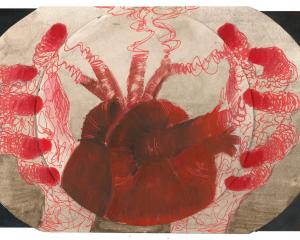Imagine living inside a locked closet without any control over any aspect of your life.
You cannot choose when and what you eat, how you spend your time, whether or not you will have a partner and children, or who that partner will be.
You cannot even decide when the lights will go on and off.
Think about spending your entire life like this, a prisoner, even though you have committed no crime.
This is the life for an animal in a laboratory.
It is deprivation, isolation and misery.
Scientists should not be able to test products intended for human use on animals.
Testing on animals is cruel and unethical; it is not reliable and there are other alternatives.
It is cruel and unethical to sentence more than 100 million thinking, feeling animals to life in a laboratory cage and intentionally cause them pain, loneliness and fear.
On top of the deprivation and isolation, there are the experiments.
United States law allows animals to be burned, shocked, poisoned, isolated, starved, drowned and brain-damaged.
No experiment, no matter how painful or trivial, is prohibited, and no painkillers are required.
After enduring these painful, terrifying procedures, animals are dumped back into a cage.
They do not know if they will be dragged from their prison cell for an injection, blood withdrawal, a painful procedure, surgery or death.
Often they see other animals killed right in front of them.
Do we really need another eyeliner, lipstick or shampoo so badly that it should come at the expense of another animal's life?It is cruel and unethical to test products intended for humans on animals.
There are alternatives to animal testing, so why are we not using them?National Institutes of Health former director Dr Elias Zerhouni said we have moved away from studying human disease in humans.
''We all drank the Kool-Aid on that one, me included.
''The problem is that it has not worked, and it's time we stopped dancing around the problem.
''We need to refocus and adapt new methodologies for use in humans to understand disease biology in humans.''
Scientists have developed alternatives to animal testing.
Some of these alternatives are currently being used alongside animal testing.
For example, some scientists are using synthetic skin to measure how drugs travel through the skin.
Other scientists use human cell cultures to test how drugs work.
There are alternatives to animal testing and we should be using them, because animal testing is not reliable.
The Food and Drug Administration reports that 92 out of every 100 drugs that pass animal tests, fail in humans.
According to the former scientific executive of Huntingdon Life Sciences, animal tests and human results agree 5-25% of the time.
Among the hundreds of techniques available instead of animal experiments, cell culture toxicology methods give accuracy rates of 80-85%.
Testing chemicals on an animal with different body chemistry is a fundamentally flawed system. It is also morally wrong.
These tests do not cure any sort of human illness; they just sacrifice helpless animals for the sake of human convenience.
Testing products intended for humans on animals is pointless because it is not reliable.
So there is no excuse for people to continue to commit this act.
Animals have feelings too, so what kind of people would we be if we did not try to take action to stop another's suffering?
Your compassion could make the difference and together we can take action.
• By Eliza Barrett, Year 12, Tokomairiro High School












